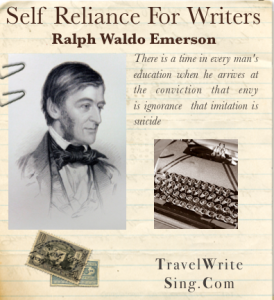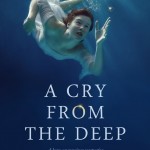I’m re-reading Ralph Waldo Emerson’s essay “Self-reliance,” and hearing it speak to me in new ways as my focus hones in on writing. A lot the essays says is applicable to that profession.
Emerson’s second paragraphs begins with the declaration that “There is a time in every man’s education when he arrives at the conviction that envy is ignorance that imitation is suicide…” Writer tasked with articulating beyond influences by learning to trust the sound of their own voice should be able to relate.
Emerson peppers his introduction with Socratic-Shaskepearan advice, “Trust thyself: every heart vibrates to that iron string.” This iron string vibrates louder than ever now that writers find themselves in a less edited climate that puts them in the driver seat, for better or worse, in releasing their content without someone else making a red penned pass.
Right after re-reading Emerson’s Opus, I felt like going back and reading it again. Compacted within it are things relevant to writing and writer’s place in society as seen from exploring each individual’s place in the larger fabric of society.
It does lend itself to an anarchist reading with lines like, “Society everywhere is a conspiracy against the manhood of everyone of it’s members.” Man: 1 Society: 0. But this is not an anti-society treatise. Its lens is an individuals one that encourages trust in one to listen to one’s inner voice rather than the dogma of established trains of thoughts.
In a year that’s seen two competing political ideologies polarize their supporters, Emerson is a good reminder that the choice isn’t between the two world views. It’s not choice between anything. Instead it’s seeing the world through your own eyes having the situational self-awareness and trusting your own sensibilities rather than adopting another’s viewpoint.
Self-reliance is a roadmap for how to live, and also a vehicle to navigate inside with a bumper sticker that reads “Life only avails, not the having lived.”
—





